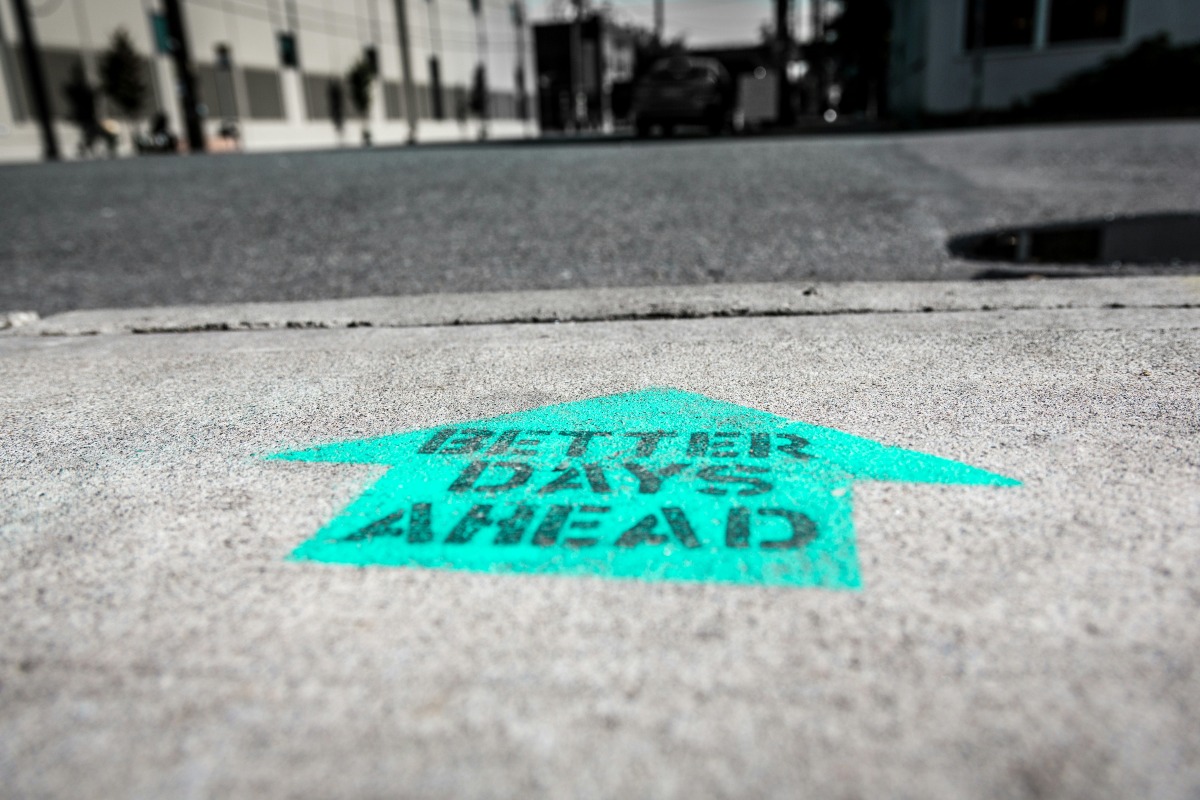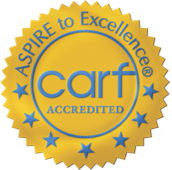Finding a personalized strategy for overcoming both mental health disorders and addiction is a difficult journey, especially as mental health disorders and addiction can be intimately linked to each other. Difficult feelings often accompany the use of drugs or alcohol, either initially informing their use or developing as a result of substance use. For some, the use of medication to address addiction can be effective, but requires an educated, careful approach to use correctly. Ketamine is one of these drugs that has been used to address mental health disorders. Yet, it can also lead to addiction and destructive side effects. Carefully monitoring the use of ketamine is necessary for preventing ketamine addiction while overcoming mental health disorders.
What Is Ketamine?
While ketamine is not an opioid itself, it has seen use as a replacement for prescription opioids in a medical setting to help treat mental health disorders like bipolar disorder, post-traumatic stress disorder (PTSD), and depression in certain circumstances, typically with those who have already tried other antidepressant medication or who are living with suicidal ideology and need a fast-acting method of addressing these feelings. However, it is also an addictive and dangerous drug, especially when not used correctly or under the supervision of a trained professional, with illicit use of ketamine often leading to ketamine addiction and a myriad of dangerous side effects.
The drug can be injected, snorted, or mixed with other liquids and ingested, and has even been developed into a nasal spray to be used under the guidance and supervision of a medical professional.
Ketamine is also referred to as a “dissociative anesthetic hallucinogen,” causing a person to feel detached from themselves while creating a strong sedative effect. While these relaxing and calming effects can make coping with certain challenges like mental health disorders easier when used alongside a medical professional, it is also often abused and misused for their hallucinogenic and dissociative effects.
Ketamine addiction can also be even more dangerous when looking for street-level ketamine alternatives. Not only can street-level ketamine be cut with several other substances with or without a person’s knowledge, including other drugs, but this use of ketamine can also have a myriad of destructive effects. Ketamine addiction can set in quickly when not monitored or addressed, and those looking to street-level ketamine to self-medicate mental health disorders can often be at a higher risk of developing ketamine addiction or increasing their risk of negative side effects and destructive consequences.
Even when used appropriately, ketamine still requires close monitoring by a dedicated mental health and addiction professional to use safely. While it has seen success in some circumstances addressing treatment-resistant depression and other challenging mental health disorders, that does not mean that ketamine will work for everyone, or that it is always a safe option. Rather, being cognizant of the signs of ketamine addiction and talking to a mental health professional before exploring options like ketamine or attempting to self-medicate with the drug is necessary to find each person’s best approach to healing throughout their mental health recovery journey.
Understanding the Risks of Ketamine Addiction
Addiction of any kind can be devastating, not just to individuals engaging with drugs, alcohol, or behavioral addictions, but to entire families and communities. Ketamine addiction can similarly impact a person and those closest to them, making monitoring the use of ketamine in medication-assisted treatment (MAT) incredibly important. Even those using ketamine under the supervision of a medical professional and to treat diagnosed mental health disorders are not immune to developing an addiction to the drug, with the chances of addiction increasing if a person uses street-level ketamine to address self-diagnosed challenges or using ketamine in a way not monitored or directed by a medical professional.
The Effects of Ketamine
Ketamine is a fast-acting drug that has a myriad of hallucinogenic effects and causes a person to feel “disconnected” from their physical body while under its effects. It is also used as a powerful sedative, bringing feelings of dissociation which can help address intense feelings of depression and improve mood. However, it can also cause nausea, dizziness, and euphoric effects.
While the effects of ketamine can manifest quickly, they also subside quickly, with the effects of ketamine use lasting only about 30 minutes to an hour. Afterward, a person may feel a rush of side effects, including feelings of agitation, nausea, or depression, as these suppressed emotions come back. Increased heart rate and tension are also common as a result of ketamine use.
Those using ketamine under the direction and administration of a medical professional also should not approach this form of treatment as a “fix” to mental health disorders or treatment-resistant depression. No medication or drug can replace hard work, therapy, and other forms of effective mental health care. Rather, it is used as a tool to facilitate developing other skills and perspectives while addressing symptoms of depression. However, with the addictive properties of ketamine, it is paramount to carefully monitor the use of the drug to prevent addiction or an unhealthy relationship with the drug, ensuring a person doesn’t become reliant on the drug to “feel better” or turn to ketamine in place of other practiced strategies.
Signs of Ketamine Addiction
Ketamine addiction can profoundly affect daily life. Recognizing the signs of ketamine addiction in oneself or a loved one, whether they are using the drug to address mental health needs or engaging with street-level ketamine recreationally, is paramount to addressing the challenging effects of addiction in daily life. Some common signs of ketamine addiction can include:
- Increased feelings of depression when not using the drug
- Anxiety and paranoia
- Compromised focus and attention
- Difficulty forming or recalling memories
- Rapid mood swings
- Slurred speech or difficulty controlling muscles
- Persistent feelings of dissociation or detachment from loved ones, personal life, responsibilities, and more
- Compromised motor skills and clumsiness
Those living with a ketamine addiction may also engage in increasingly secretive behavior, from inconsistent schedules, not divulging information like where they are going or who they are meeting or being intentionally vague when asked about such things, and locking doors to personal spaces like a bedroom, personal office, vehicle, or other personal areas.
Increased cravings for ketamine when its effects wear off, using more than intended, struggling to cut back on the use of the drug even when a person may otherwise acknowledge the need, and an increase in cravings or thinking about opportunities to use the drug can also indicate a need to address ketamine addiction.
Likewise, those living with ketamine addiction may prioritize its use over other personal responsibilities or professional obligations or may use ketamine in increasingly unsafe situations, such as when driving a vehicle, in public spaces, or at social events. Combining ketamine with other substances or alcohol can also create a plethora of unique and dangerous challenges to address, necessitating professional care to address ketamine addiction and its effects.
Identifying Ketamine Withdrawal
Ketamine addiction can develop even in those using the drug as prescribed, making it a risky option and only used in specific circumstances when monitored by a professional. However, nobody is immune to its addictive properties, and ketamine addiction can often develop beneath the surface without a person recognizing how their relationship with the drug may have changed over time, only noticing a difference when withdrawal symptoms set in. Some signs of ketamine withdrawal include:
- Shaking
- Nausea
- Mood swings
- Increased depression
- Being easily agitated or angered when not using ketamine
- Sweating
- Difficulty sleeping
- Intense physical fatigue
- Cravings for more ketamine, even soon after the immediate effects of the drug have worn off
Noticing any of these signs in oneself or a loved one can be a reason to contact a professional regarding ketamine addiction or talk to a professional about their use of ketamine in mental health recovery.
The Long-Term Effects of Ketamine Use
Ketamine addiction can also have lasting effects, especially for those who have used the drug for an extended period. Bladder pains, stomach pain, ulcers, and kidney problems are possible following prolonged ketamine use. Persisting cognitive effects like memory loss or difficulty forming memories are also common, even if a person stops the use of ketamine. Lastly, hallucinogen persisting perception disorder (HPPD) is also possible, necessitating a unique treatment plan to address.
Monitoring Ketamine Use and Ketamine Addiction in a Loved One
Just as addiction is a disease that affects entire families and communities, not just individuals, effective monitoring and healing from mental health disorders and ketamine addiction also involve entire communities and support systems. From dedicated professionals like those at Hawaii Island Recovery to engage and educate family members, identifying the signs of ketamine addiction and monitoring even directed ketamine use is an important task.
Family members, friends, loved ones, and supports can all work with professionals to familiarize themselves with potential signs of ketamine addiction in a loved one, providing an important external perspective on a person’s changes, benefits, or unhealthy side effects that may occur while using the drug. Identifying signs of ketamine use while not in a dedicated therapeutic environment is also crucial, and can indicate a shift to illicit ketamine use and ketamine addiction, necessitating professional treatment and action to adjust treatment plans.
Engaging in effective family therapy can also be instrumental for those living with ketamine addiction, mental health disorders, and their family members. Not only can these dedicated family therapy programs help to educate family members on how to monitor potential signs of ketamine addiction but they can also help create new communication strategies, and birth greater sympathy and understanding regarding addiction or mental health disorders, empowering those in recovery to express themselves in a safe space better and safely discuss personal needs, goals, challenges, and the role that family can play at home throughout any stage of healing.
Those using ketamine under the supervision of a dedicated professional in a therapeutic setting should also continue to provide information on the efficacy of these treatments to identify an increase in tolerance or changing attitudes towards the drug.
Treating Ketamine Addiction
Addiction is a devastating disease, but there is nobody who is ever “too addicted” to any substance or behavior, and healing is always possible. However, overcoming ketamine addiction is a complicated journey. It involves addressing not just the use of ketamine itself, but also creating a comprehensive treatment plan to address underlying needs and factors that led a person to use ketamine in the first place, either under the prescription of a medical professional or if using the drug illicitly.
Starting With Detox
The first step in addressing drug addiction is to expel the traces of these substances from a person’s body, often through dedicated medical detox programs. Hawaii Island Recovery offers a dedicated medical detox program to help those beginning their journey overcoming ketamine addiction not only set expectations and establish themselves in a comfortable environment, but also provide medical care, therapy, emotional support, and treatment for intense withdrawal symptoms common during this phase of treatment.
Ketamine addiction detox programs can last from one to two weeks while addressing withdrawal symptoms, urges, and cravings, and establishing a basis to empower each person to transition to further levels of care. During this time, a person is also able to explore mental health needs to better understand their own needs and develop a personalized treatment plan for overcoming ketamine addiction, depression, anxiety, PTSD, and more in their healing journey.
Finding the Right Treatment
There is no one, single solution to either ketamine addiction or the underlying mental health factors that create each unique situation and experience. Rather, those in recovery benefit from finding a collection of strategies and treatment modalities, backed by a community of peers and professionals, to explore their personalized approach to sustainable healing.
Effective, evidence-based treatment modalities like cognitive-behavioral therapy (CBT), dialectical behavior therapy (DBT), motivational interviewing (MI), and more are all options to explore. Trauma-informed therapy with trained, educated professionals can also be necessary to address underlying traumatic experiences that may be connected to ketamine addiction. Dual-diagnosis treatment programs dedicated to addressing multiple challenges in tandem are also common in those overcoming ketamine addiction and are a highly personalized approach to change.
Blending these evidence-based modalities with holistic healing options and experiential therapy is also part of a truly comprehensive approach to a ketamine-free life. Mindfulness practices, nature-based healing opportunities, and oceanic healing opportunities at Hawaii Island Recovery can all provide a new approach and perspective to personal needs and goals, exploring mental health needs while overcoming the effects of ketamine addiction. Hawaii Island Recovery also highlights the important role of spiritual healing in each of its treatment programs for a lasting and effective approach to ketamine addiction treatment that uses the natural advantages of the Hawaiian island and culture for profound, transformative change.
Making Changes to a Treatment Plan
A person should never feel “stuck” in their healing journey. There is nothing easy about overcoming ketamine addiction, and being able to talk to a professional and make adjustments to a treatment plan, moving away from less effective therapies to exploring new options to find what works best, is a necessary part of a truly transformational recovery journey.
This flexibility can empower those in recovery to continue to focus on their best practices and empower each person to become an agent of their continued success, both during their time in a dedicated treatment program and in daily life. Each person’s needs and goals will change with time as they progress in their treatment, and updating treatment plans, milestones, and exploring new options at any stage of treatment is necessary.
Making these changes is a testament to a person’s dedication to their healing and motivation for overcoming ketamine addiction, learning to be an advocate of their own needs and goals in treatment. For those overcoming ketamine use in a treatment setting, making changes to previous treatment plans is also necessary to address changing goals and relationships with the drug in recovery, approaching established challenges in a new way to continue healing.
Finding a Community
Nobody ever has to overcome addiction alone. Rather, finding a community of peers and professionals can be a truly unique experience, sharing in both challenges and triumphs with those who intimately understand the hard work it takes to overcome ketamine addiction. Locating local support groups or using online tools to find addiction recovery groups can be great ways of exploring personal needs and feeling supported and understood in recovery, creating a place of motivation, accountability, and belonging that can highlight a person’s commitment to their sober well-being.
Overcoming ketamine addiction is a difficult journey, but always possible. At Hawaii Island Recovery, we are prepared to meet you where you are in your recovery journey, exploring not just the effects of ketamine addiction on your life but also creating a comprehensive plan to continue addressing underlying mental health disorders, trauma, and more for a holistic healing journey. We also use the healing power of community in each of our programs, highlighting not just the power of peers in healing, but also in corporate the family through effective family therapy programs to empower change and education at home. To learn more about how we can help you overcome ketamine addiction, call us today at (866) 390-5070.












